Instead of garbage enzymes from my previous post, this post is more on EDIBLE enzymes. Had this idea when my aunt made some really great tasting dragonfruit enzyme drink. Before I proceed in typing about the methods to make the dragonfruit enzyme, I shall explain about alcohol since they're both related.
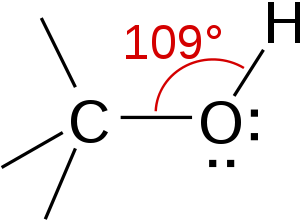
When majority of the population hear or see this word, the first thing they would think of is alcoholic beverages like beer, wine, liqueur, vodka etc. Not all alcohols are edible (or should I say drinkable). Or..If you are willing to risk your lives, all alcohols can be consumed but many are poisonous and can lead to death. Some alcohols are used in the sterilizing apparatus or removing bacteria.
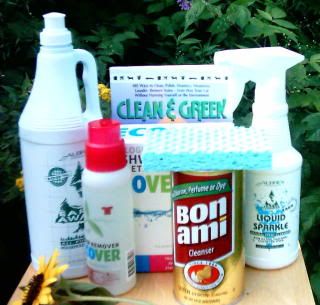
Here are some examples of alcohol's chemical formula:
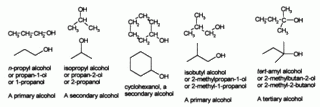
Ethanol is one of the few alcohols available in any quantity as a natural product. The properties of "alcohol" or ethyl alcohol have been known since people first collected fruits and grapes and allowed them to ferment. Fermentation is the breakdown of carbohydrates in the presence of an enzyme catalyst into smaller compounds. Ethanol is a product of the fermentation of plant materials which contain carbohydrates -- fruits and grains. The natural fermentation solution from grapes achieves a maximum alcohol content of about 12% in wine. On exposure to oxygen, the ethanol is oxidised to acetic acid and the solution becomes vinegar.
HOCH₂(CHOH)₄4CH=O --> 2CH₃CH₂OH + 2CO₂
glucose --> ethanol
CH₃CH₂OH + CO₂ --> CH₃COOH + H₂O
ethanol --> acetic acid(vinegar)
OR

Whiskeys and brandies are distilled from fermentation solutions and have a much higher alcohol content -- 40-45%, or "80-90 proof." Enzyme catalysts are not active in solutions of such high alcohol concentration, and the alcohol is safe from reaction with oxygen.
For commercial chemical use, ethanol and other small alcohols are obtained from petroleum alkenes.
The simple alcohols, compounds that contain the hydroxyl as the main functional group, have higher boiling points and greater solubility in water than hydrocarbons or alkyl halides of comparable molecular weight. Both of these groups are due to the hydrogen bonding between -OH groups of the alcohol and of the alcohol with the water.
How to make your own NON ALCOHOLIC dragon fruit enzyme?
Ingredients
1 medium sized organic dragon fruit
500mL filtered water, boiled and cooled
Equipment
A 1-litre wide-mouth glass jar with lid
A 3-litre stainless steel pot
Method
1. Sterilise the glass jar and lid by putting water in and boiling over stove for a few minutes.
2. Remove from fire and air-dry.
3. Rinse and peel dragon fruit.
4. Transfer to mixing bowl.
5. Use a wooden pestle and crush the dragon fruit into tiny pieces.
6. Transfer to the sterilised glass jar.
7. Add the boiled and cooled water.
8. Cover with lid and screw tight.
9. Refrigerate for three days in the refrigerator.
10. Remove from the refrigerator and leave in a cool clean place for 2-3 days to culture the microorganism.
11. The liquid will taste sourish when the carbohydrate in the dragon fruit is transformed by the microorganism and developed naturally into beneficial acids which help strengthen the intestinal flora to improve digestion.
12. Take about 100mL two times a day before meal. Pulps can also be taken together.
13. Refrigerate the balance in the refrigerator.
14. Consume within 3-4 days for best result.
How about ALCOHOLIC ones??
just by using the ratio of 1:3:10
where the ratio means sugar:dragon fruit flesh:water
with the methods mentioned above.
AND!! leave it to ferment for a month
Here's the product of it. Well, about the bottle..replace "Bacardi" with "Dragon Fruit Enzyme Drink"
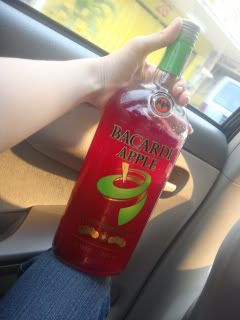
I just love the Bacardi logo
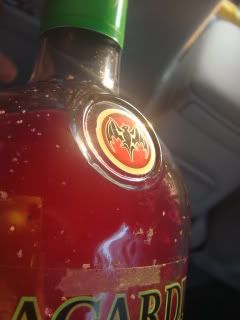
Benefits?
- improve digestion
- strengthen the immune function
- improve cell function
- discharge waste from the body
- improve skin condition
- prevent fungal and yeast growth

0 comments:
Post a Comment